Can you cut 1 Tonne of carbon pollution out of your life?
Take the challengeVlad Sokhin is tackling one of the biggest issues facing mankind through the prism of communities in the Pacific, whose very existence is threatened by global warming.
Warm Waters is a long-term photographic project by Russian Photographer Vlad Sokhin, who has a talent for raising awareness of important world issues through his lens.
The project investigates the impacts of climate change on the nature and people of the communities living in and around the Pacific Ocean.
Vlad has been travelling across the Pacific region and hopes to cover island nations and significant territories from Alaska to New Zealand.
"For this project I'm collecting photographic evidence of the climate change related issues, such as sea level rise, extreme weather events, deforestation caused by illegal logging, coral bleaching, coastal erosion etc."- Vlad Sokhin
Vlad has already covered sea level rise in Tuvalu, Kiribati and the Marshall Islands, land grabs and related climate change issues in Papua New Guinea, Cyclone Pam in Vanuatu and Tuvalu and climate change refugees from Tuvalu in Niue.
"I’ve just come back from another trip to the North Pacific. Whilst in the Northern Mariana Islands, Guam, Federated States of Micronesia and Palau, I was working on stories about coral bleaching, sea level rise, coastal erosion and typhoon aftermaths. In early 2016 I’m planning to return again to the Marshall Islands, Kiribati, Vanuatu, and also cover Fiji, Samoa, Tokelau and the Solomon Islands."- Vlad Sokhin
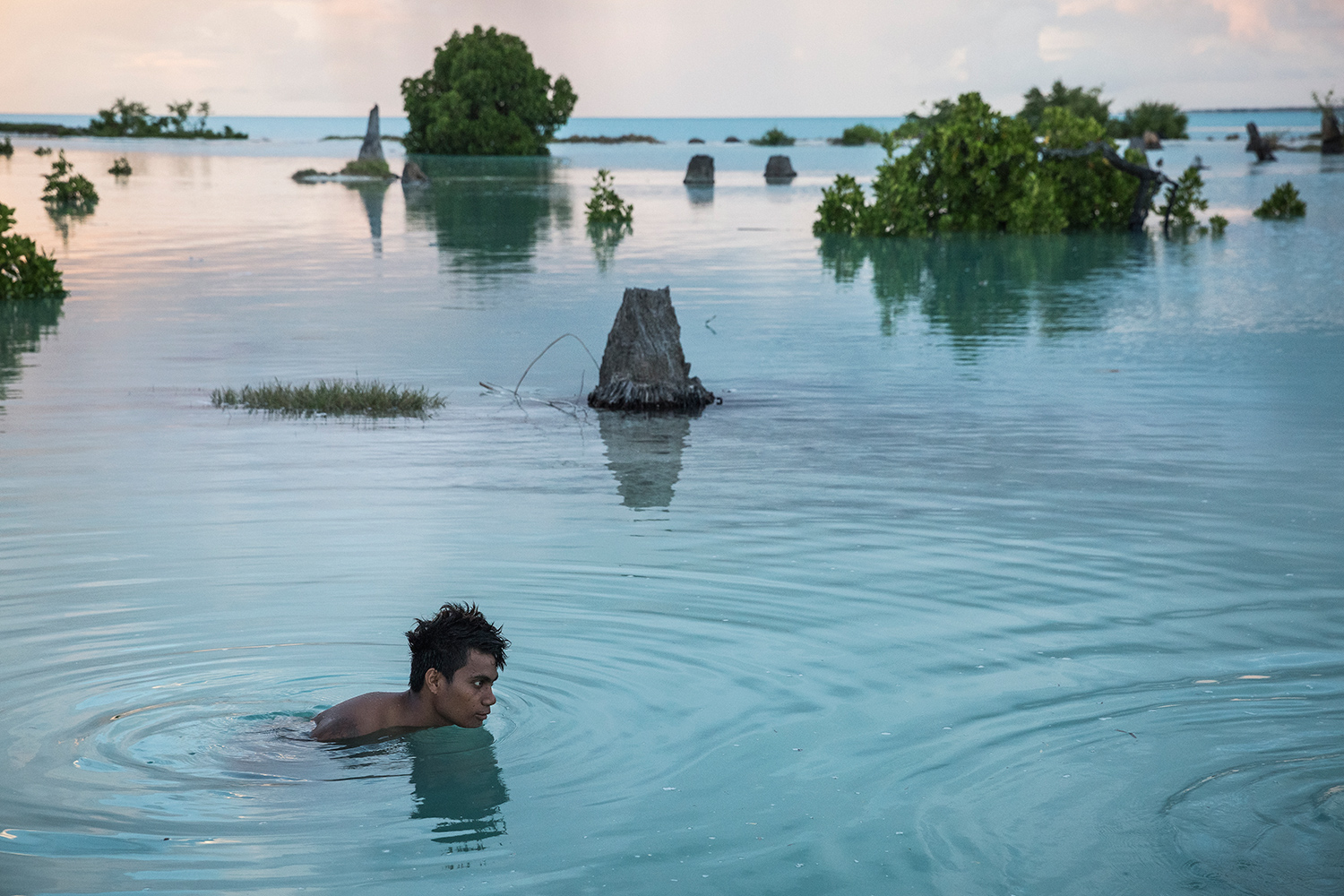
[Image caption] Peia Kararaua, 16, swims in the flooded area of Aberao village. Kiribati is one of the countries most affected by sea level rise. During hight tide many villages become inundated making large parts of them uninhabitable. Photo: Warm Waters - Vlad Sokhin/Panos Pictures
Global warming and climate change pose an existential threat to the low-lying nations of the Pacific. Sea level rise in Kiribati is already proving climate change scientists' worst prediction that the country may disappear under the sea within decades.
"THE URGENCY OF THE ISSUE CANNOT BE EMPHASIZED ENOUGH. WE ARE NOW FACING MAJOR CHALLENGES NEVER FACED BEFORE NOT ONLY FROM THE RISE IN SEA LEVELS, BUT ALSO FROM THE REAL POSSIBILITY OF CHANGES IN WEATHER PATTERNS"- President of Kiribati, Anote Tong
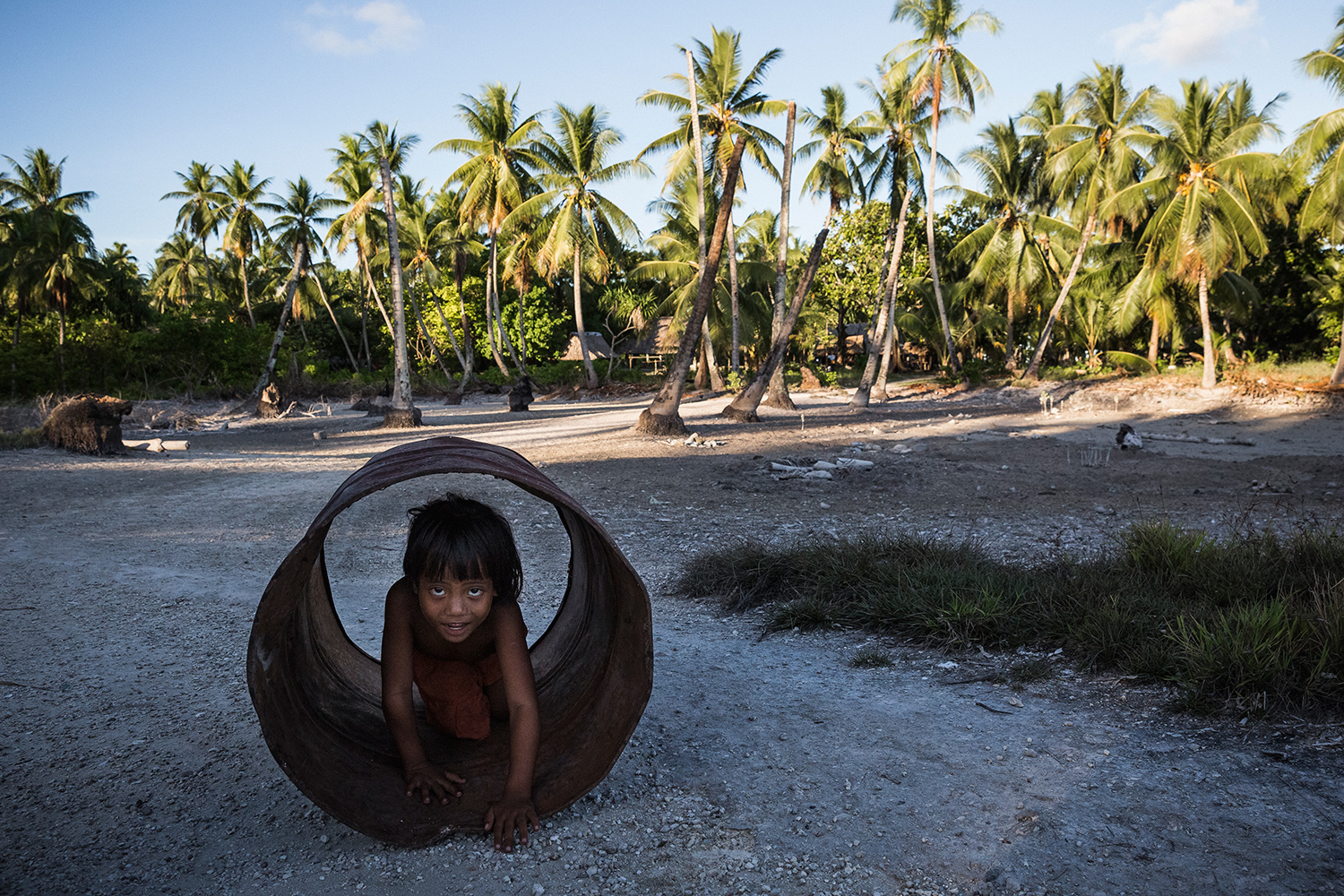
[Image caption] A girl playing in a barrel near the shore. Abaiang is one of Kiribati's atolls most threatened by rising sea levels. Photo: Warm Waters - Vlad Sokhin/Panos Pictures
Here are a few more images Vlad has taken on this incredible journey which is far from over. He is shining the spotlight on the Pacific and we mustn't turn away.
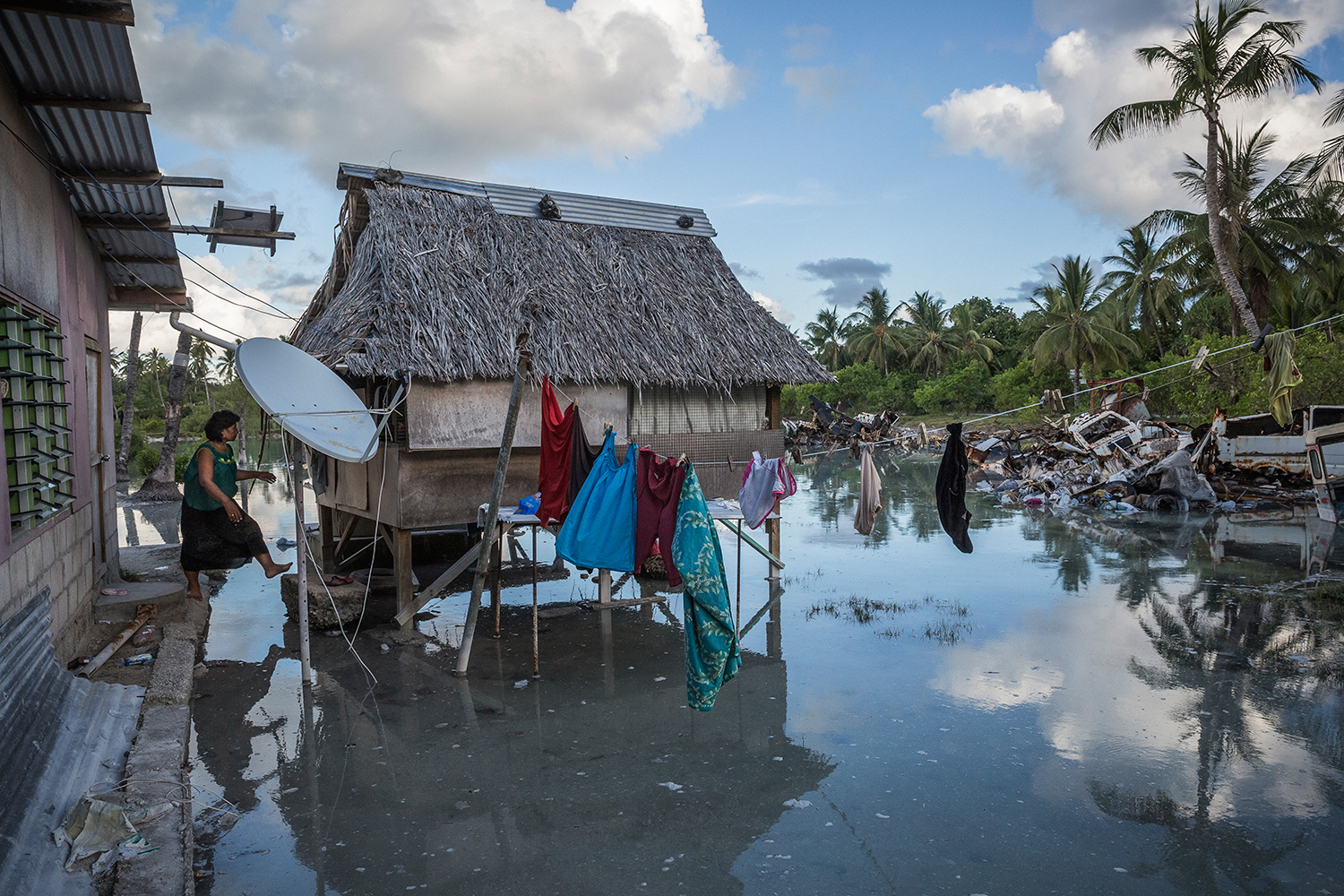
[Image caption] Etana Matthew, 58, jumps from her house to her 'kiakia,' a traditional Kiribati house flooded during high tide. Aberao village where she lives is one of the most affected by sea level rise. The sea wall that is supposed to protect her village is repeatedly broken during high tide by the waves. Photo: Warm Waters - Vlad Sokhin/Panos Pictures
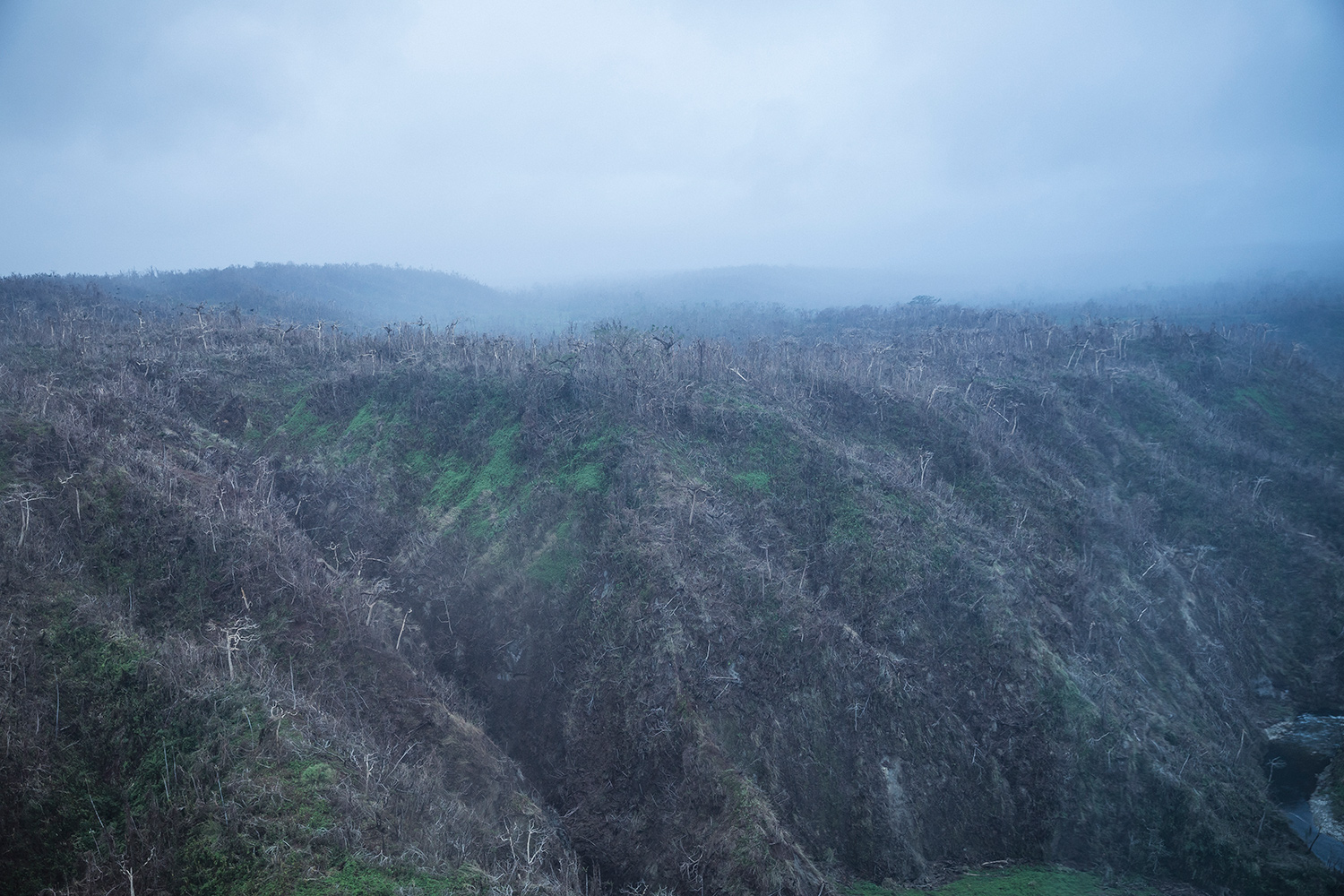
[Image caption] Efate Island was badly hit by Cyclone Pam. Forests and people's gardens were destroyed and many locals lost their houses. Photo: Warm Waters - Vlad Sokhin/Panos Pictures
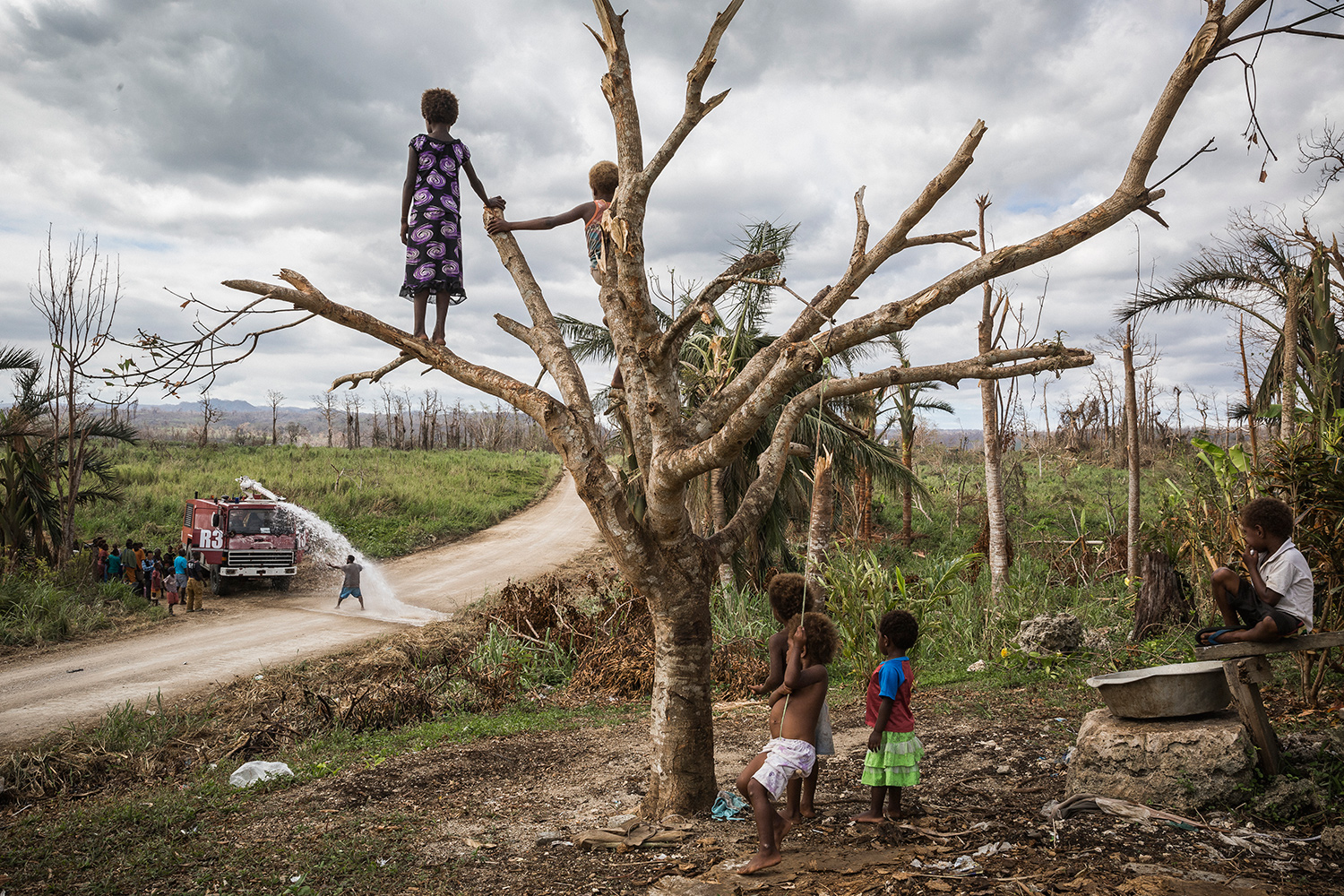
[Image caption] Children of Etas village on Efate Island watch a water truck delivering water to their village. After Cyclone Pam hit Vanuatu, many local communities were left without fresh water supplies. Photo: Warm Waters - Vlad Sokhin/Panos Pictures
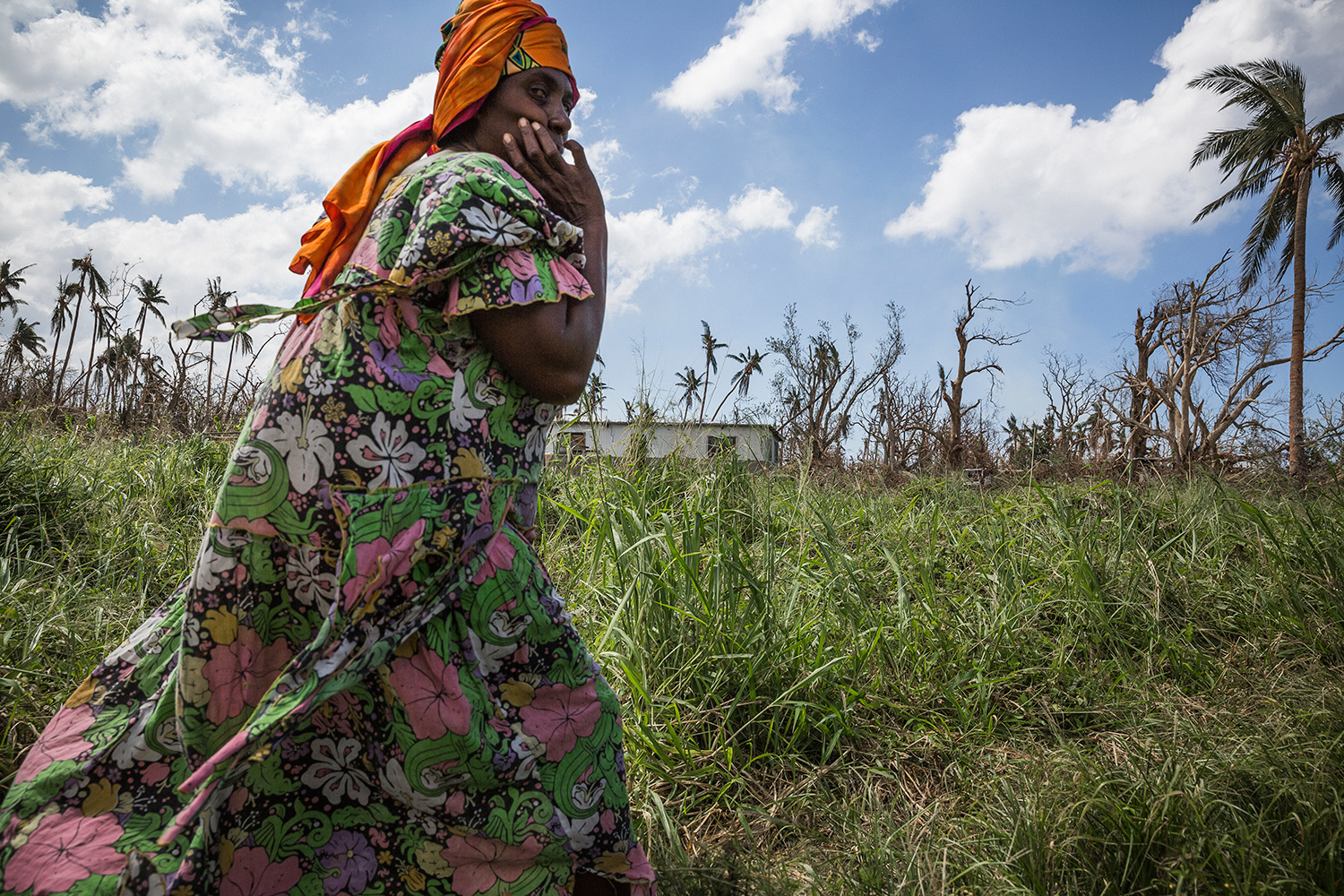
[Image caption] Margaret Johathon, 46, walks through Pang Pang village which was badly damaged by Cyclone Pam. Margaret is a single mother and supports her two sons through selling vegetables from her garden in a local market. Her house and garden were completely destroyed by Cyclone Pam and she's lost everything. Photo: Warm Waters - Vlad Sokhin/Panos Pictures
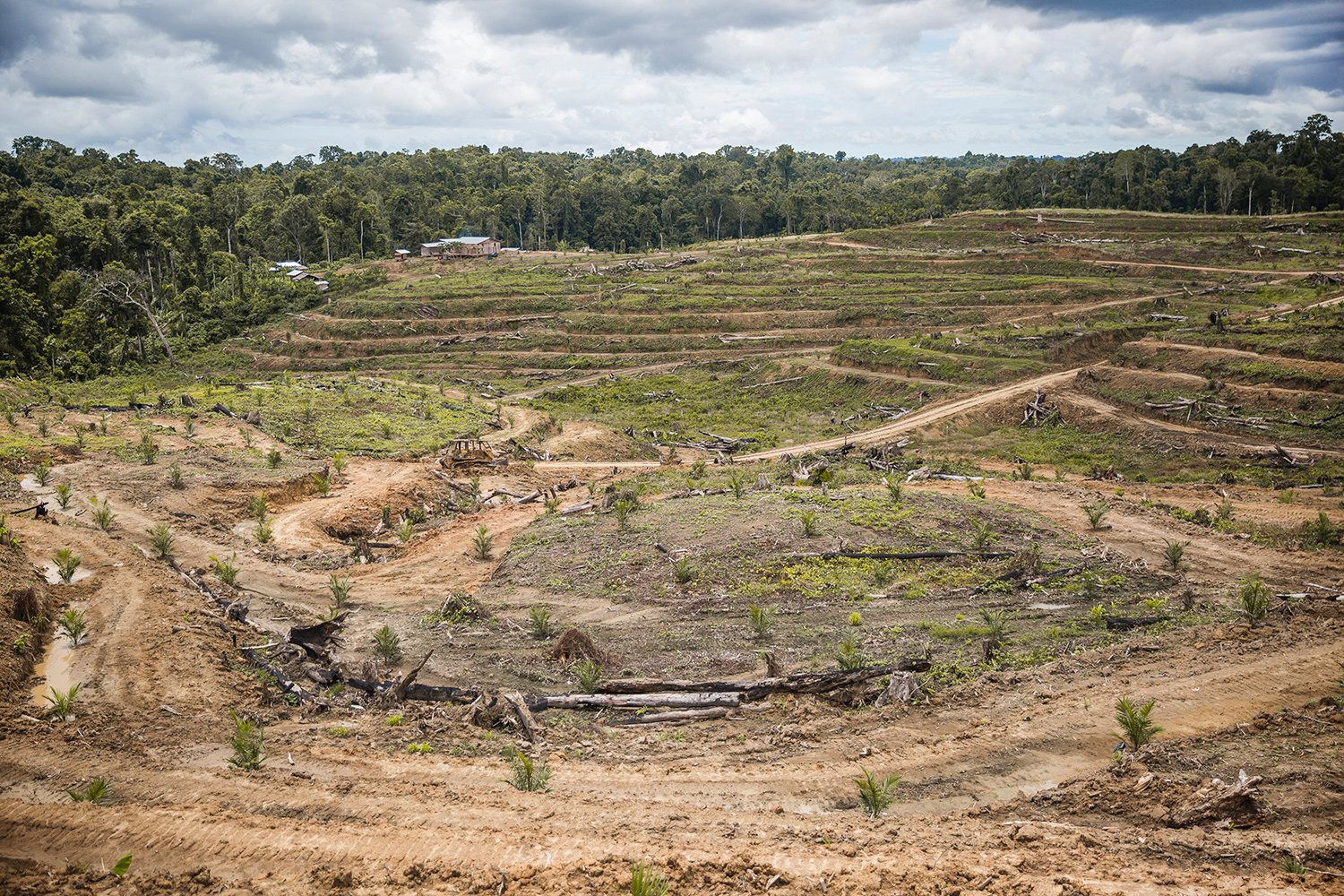
[Image caption] Papua New Guinea, Trin, East Sepik Province A deforested area near Trin village. The World Bank estimates 70% of logging in PNG is illegal. Malaysian companies dominate the logging business in PNG and they have been accused of serious human rights violations and corrupt practices. Photo: Warm Waters - Vlad Sokhin/Panos Pictures
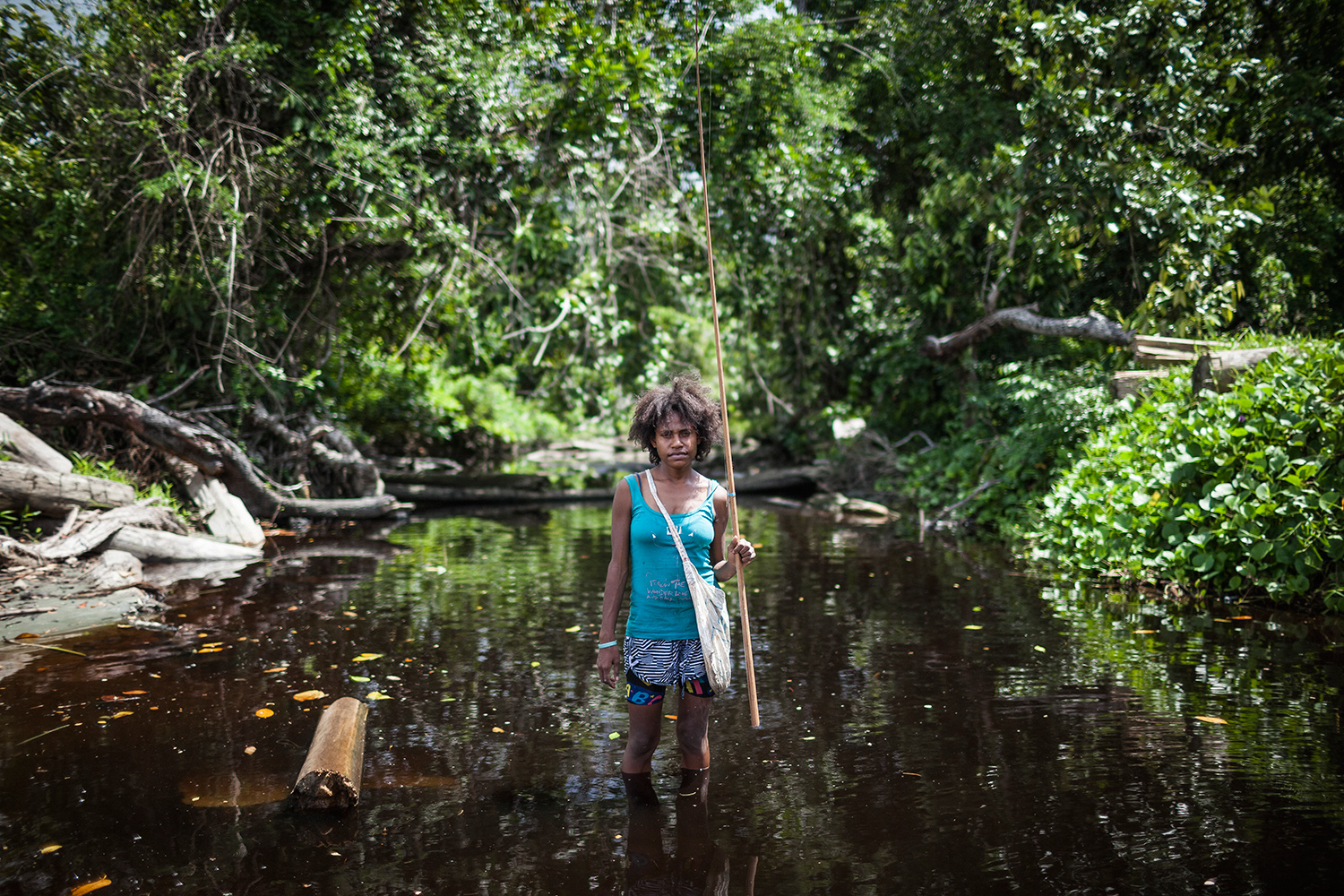
[Image caption] Papau New Guinea, Nundawin village, Turubu Bay Christophilda Milik, 19, holding a fishing pole while she stands in a mangrove swamp near to where a logging company loads timber onto transport barges. Milik says "I used to catch fish in this swamp, but now almost all fish disappear because the water was polluted by oil from machines." Photo: Warm Waters - Vlad Sokhin/Panos Pictures
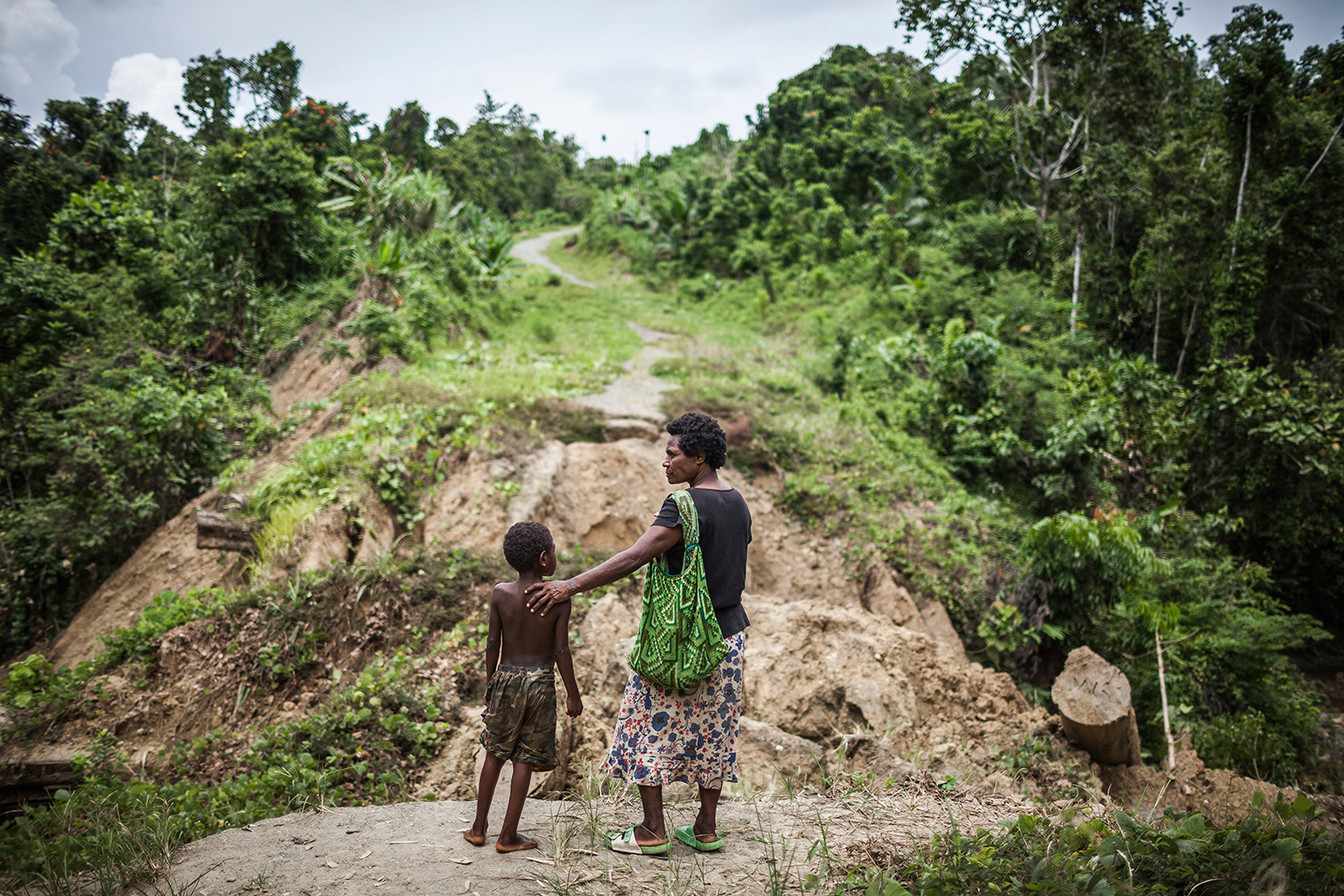
[Image caption] Papua New Guinea, Manwara village, East Sepik Prov Martha Wokma, 49, stranded, with her nephew, beside a collapsed bridge that was used by illegal loggers to bring timber out of the forest. Martha says: 'We can't take this road anymore, we can't visit our relatives and friends in other villages. The logging company made big damage to our village and environment and they never paid any compensation.' Illegal logging is having a telling environmental impact on PNG. Logging companies often corruptly obtain permissions to cut timber from its forests, and they usual operate without controls, destroying ecosystems and local people's lives. Photo: Warm Waters - Vlad Sokhin/Panos Pictures
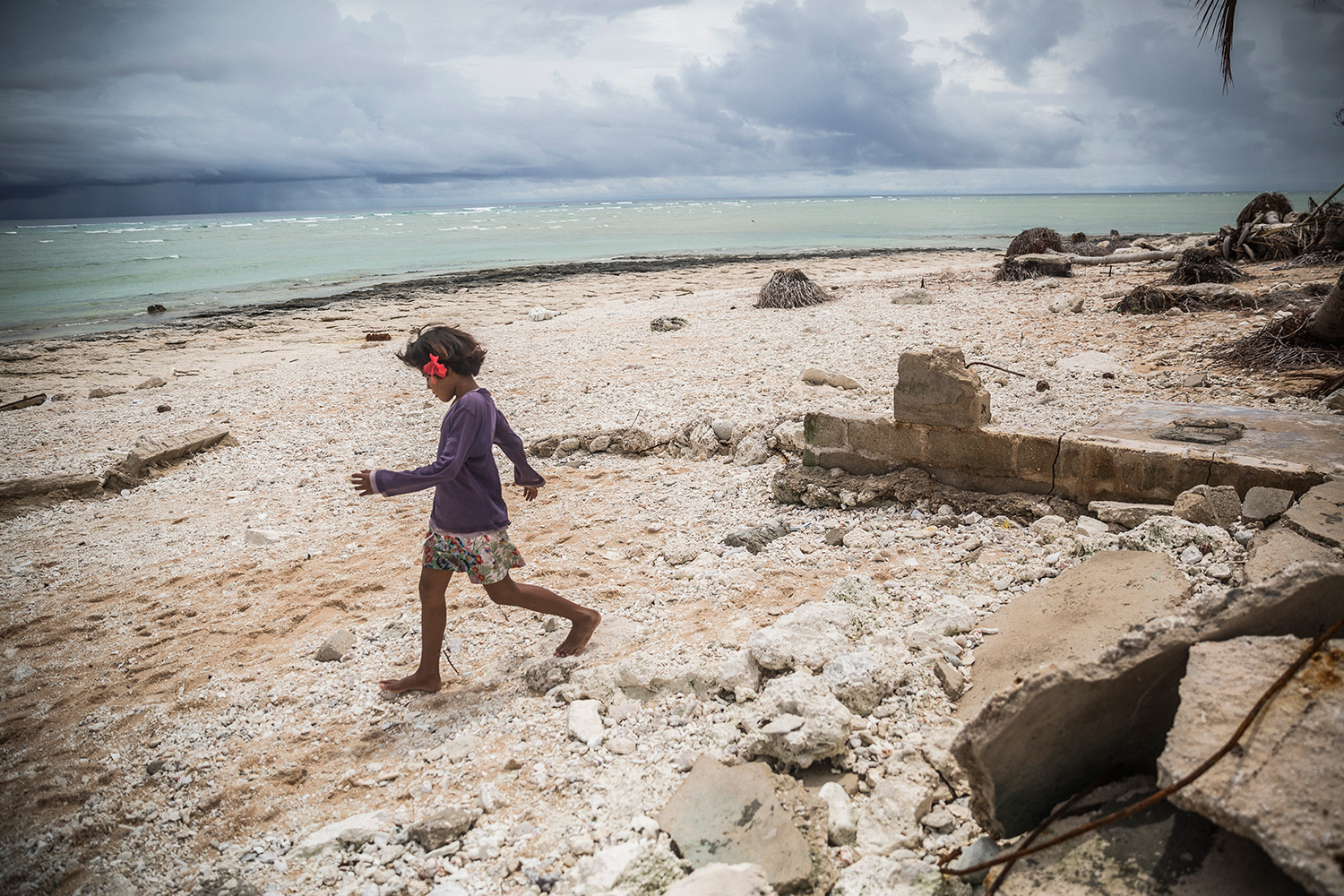
[Image caption] A girl walks through the basement of a destroyed building on Nui Atoll in Tuvalu. Photo: Warm Waters - Vlad Sokhin/Panos Pictures
As global warming and climate change continue to endanger ecosystems and the way of life of the people from the affected communities of the Pacific Region, inhabitants of the island-nations of Kiribati, Tuvalu, the Marshall Islands, Papua New Guinea, Niue and Vanuatu already search for the solutions.
In Australia and other wealthier developed nations, we are most responsible for carbon emissions leading to global warming and certainly must take responsibility to be part of the solution, too. Each and every one of us can do so by taking action on climate change in our everyday lives.
See more of Vlad's incredible work at his website.
Please like his page on Facebook.
Follow him on Instagram.
READ THIS NEXT:
Artist creates beautiful sculptures inspired by the ugly issues of climate change
Clever illustrations show the link between everyday habits and climate change

